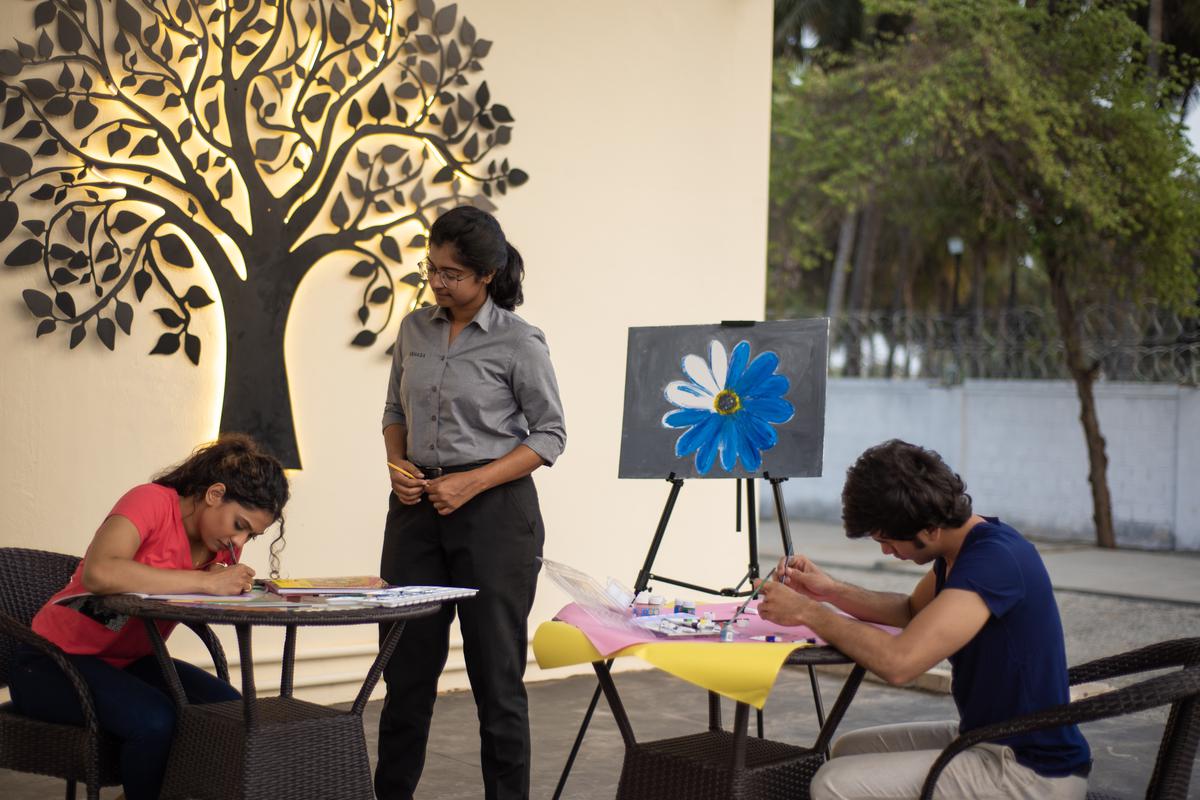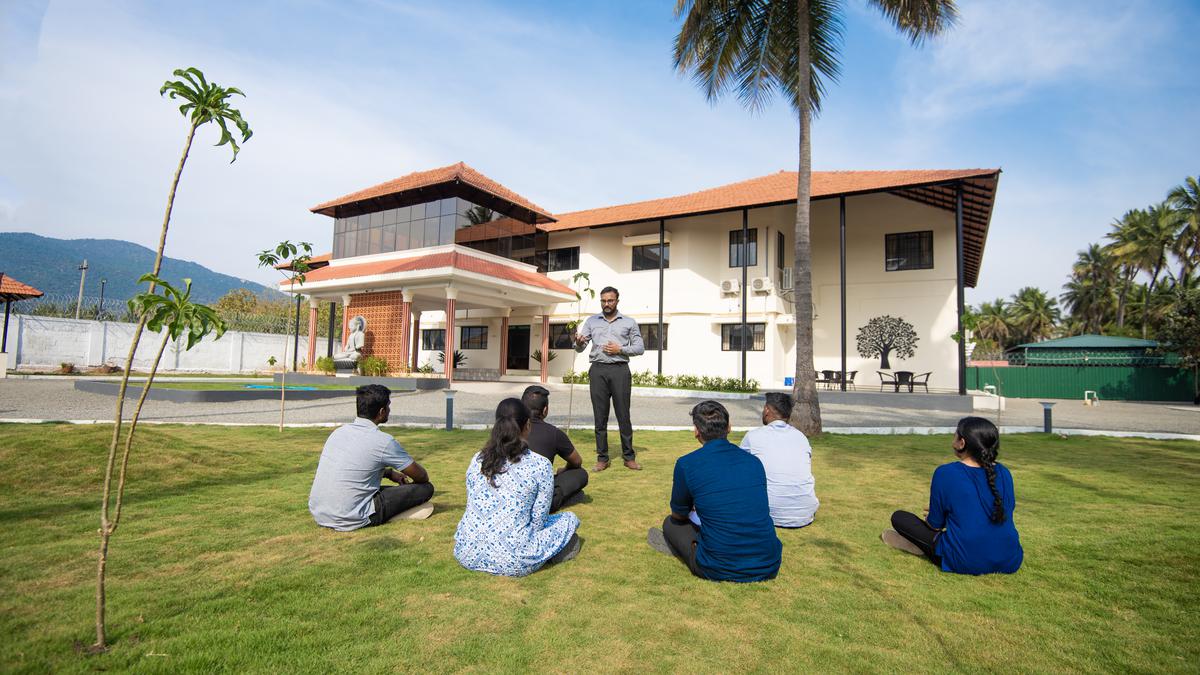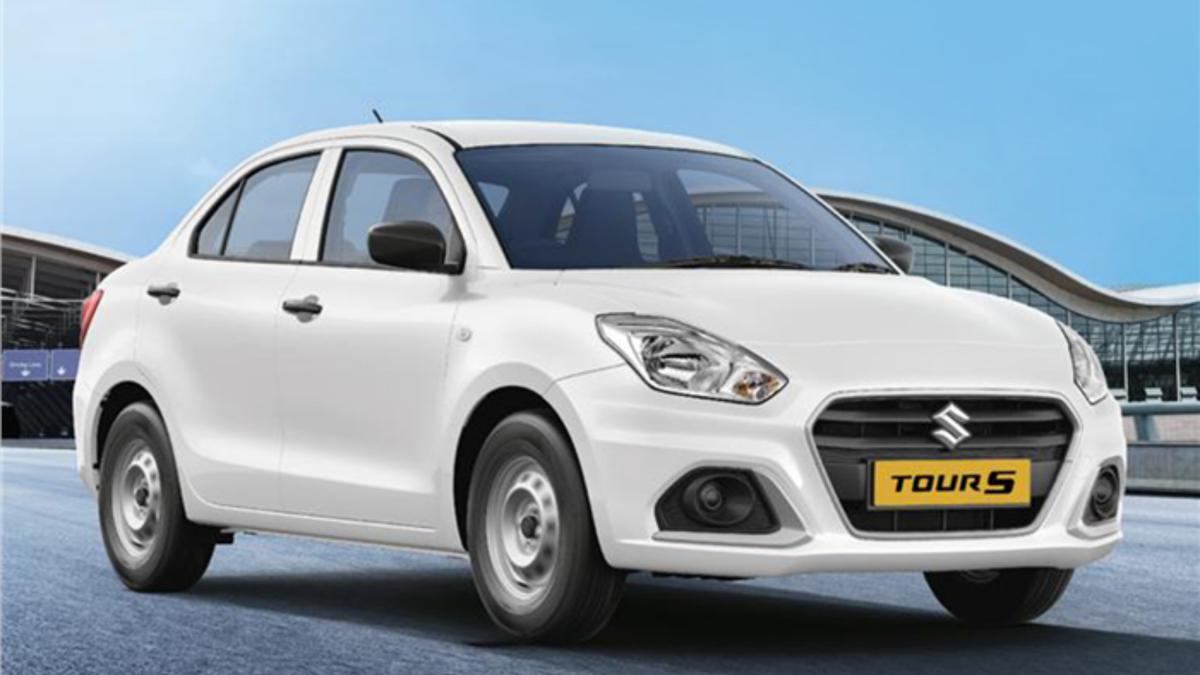Abhasa luxury rehabilitation centre at the foothills of Velliangiri Hills in Thondamuthur
| Photo Credit: Special Arrangement
At dawn, it is possible to lean out of a window at Abhasa, a luxury rehabilitation centre at the foothills of Velliangiri Hills in Thondamuthur, and gaze at the clear skies and swaying coconut groves against the backdrop of the Western Ghats and feel immediately rejuvenated. It’s that kind of view. “We have to showcase that beauty exists in life other than getting addicted to any substance,” smiles Gayathri Arvind, founder and managing director of Abhasa adding that the three-acre property set amidst Nature is a big plus, especially while treating people for de-addiction and mental-health issues.
Gayathri felt there was a lack of holistic care at rehabilitation centres in India, and set out to address this by starting Abhasa in her home town. “Most problems concerning addiction and mental health fall under the bio-psycho-social space where the reasons can be biological coming from one’s family history or a person’s current psychological status like addiction to alcohol, or social reasons like financial situations, peer pressure, or broken families. All these can make one emotionally unstable,” she explains as she breaks down the approach at her centre. “We have to look for solutions within this framework. We have a tie-up with Dr Vivek in Australia for neuro-feedback, a type of brain training done to improve its functioning by increasing or decreasing specific brainwaves. We do psychometric testing based on diagnosis and also work on lifestyle changes in patients with yoga, meditation, and music healing. We also encourage them to bond with pets. We get to to the root cause, address it, bring back a routine and guide them towards recovery.”
While the centre currently has over 40 patients from across India including NRIs, she says such spaces are still considered a taboo, and are associated with fear. Their focus is on the niche luxury segment as there are limited options.

A representative image
| Photo Credit:
Special Arrangement
Elaborating on the concept of luxury rehabilitation centres, Dr V Naveen Kumar, medical director at Abhasa draws attention to some of the studies, for example by the WHO, that says one in every five persons is bound to have an emotional disturbance at some point in their lives. “A national survey on mental health by the National Institute of Mental Health and Neurosciences (NIMHANS) shows a growing number of people with emotional disturbances. We have to keep reiterating mental health. Such retreats benefit people addicted to any substance or alcohol.”
A resort like atmosphere takes away the stigma associated with the illness, he adds. “The concept is picking up in South India. There is an increase in alcohol and drug abuse, especially among the student community who take to psycho active substances because they are easily available. This is a global problem as there is a huge market for these substances among the youth.”
At the retreat, a team of over 60 psychiatrists, clinical psychologists, counsellors, movement therapists (for activities like zumba as it helps improve blood circulation thereby improving the efficacy of medication) yoga instructors, music therapists, customise a recovery package based on the diagnosis.

A representative image
| Photo Credit:
Special Arrangement
“While we broadly adhere to the bio-social-psycho approach, we combine alternative therapies too. For example, we have a piano instructor to help those recovering from emotional disturbances turn towards music. This helps rewire the brain. One’s nutrition, physical fitness, psychological issues due to childhood trauma, broken families, and socio-economic status, can be a trigger towards addiction. For example, a businessman who had to shut down his business during COVID-19 turned alcoholic to cope with his economic crisis,” explains Naveen adding that some of the early warning signs include disturbances in sleep, change in appetite, poor performance at work or studies.
“A three-month stay at Abhasa helped my 23-year-old son recover from anxiety issues triggered by a break-up. It was a step-by-step approach clubbed with meditation and yoga that helped. Now, he is working in the UK,” explains a relieved mother. Dr Vivek, who is based in Australia, supports Abhasa with neuro-feedback. He says over a WhatsApp call, “Neuro feedback is clinically proven and prescribed for children with ADHD. It is also applicable for a spectrum of mental health issues including schizophrenia, depression, anxiety and behaviour disorder.”
Gayathri reiterates the fact that people with psychiatric concerns need help in different aspects of their lives, including work, living, social, and learning environments. “We offer help to make everyone’s journey towards recovery unique.”
To know more, call 73736-44444 or visit abhasa.in







